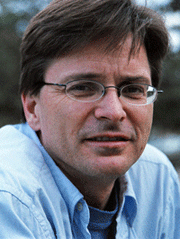And many wrote that the while the anger we may feel toward elites is justified, we have to start with self-critique and examine our own place in these systems. For example, the anger toward BP officials over the "hole in the world" at the bottom of the Gulf of Mexico co-exists with the recognition that we all live somewhere in the system that demands that oil:
"I speak of the oil spill going on and I acknowledge how implicated I am in it. My lifestyle -- despite efforts to eat wild foods, look at waste streams as resources, and live frugally -- depends heavily on oil. It's like there are these [oil] stains on my hands, all over my hands, my body and the ground around me."
In such a world, it is easy for those of us who live in affluent societies to be drained by an awareness of all this:
"My personal ambition seems to decrease in proportion to the increase in world suffering. I think that's part of my emotional reaction to crisis. I don't think I am fully alive. I'm not depressed, just weirdly diminished."
Why would someone feel diminished today? For almost all of the people who responded, the heart of their struggle was in the realization that the human species, locked into industrial societies dependent on high-energy/high-technology systems to produce food and fuel, is on a path leading to the edge of a cliff. No one offered predictions for an end time, but:
"[W]hat I see as the reality of our situation -- ecologically, politically, economically, and culturally -- is that we are in the last days of our species, and I just don't know what to do with that. The emotions are much too powerful, the grief, the sense of doom -- how does one deal with the real possibility of the extinction of not just millions of species, but of one's own species?"
Feeling isolated but resolved to act
Next Page 1 | 2 | 3 | 4 | 5 | 6 | 7 | 8
(Note: You can view every article as one long page if you sign up as an Advocate Member, or higher).





